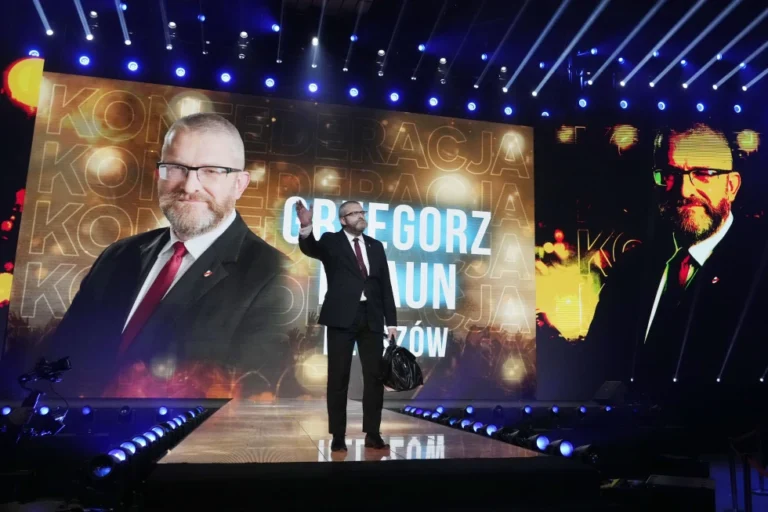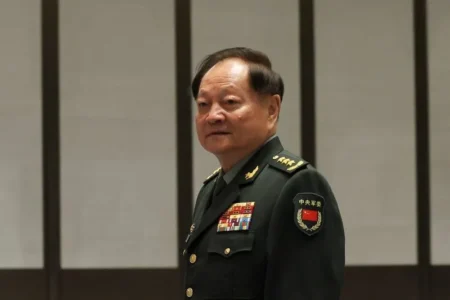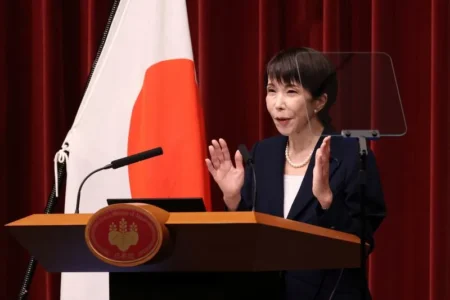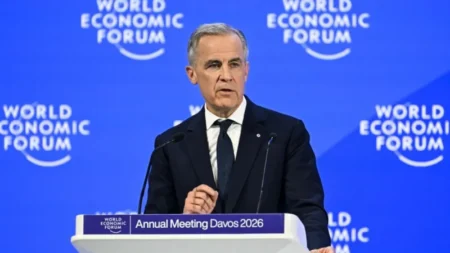Polish prosecutors have begun a preliminary probe after a controversial comment by a far-right politician shocked the nation. Grzegorz Braun, a Member of the European Parliament (MEP), claimed the gas chambers at Auschwitz were a “fake.” The statement was made during a radio interview on Thursday.
Braun has a long history of public controversy. In 2023, he was accused of antisemitism after using a fire extinguisher to put out Hanukkah candles in parliament. He also ran in this year’s presidential race and gained over 6% of the vote in the first round.
During the interview on Wnet radio, Braun made a shocking statement. He said, “Ritual murder is a fact, and such a thing as Auschwitz with its gas chambers is unfortunately a fake.” The interviewer ended the conversation immediately after the comment. The remarks have sparked public outrage.
The belief in ritual murder, where Jews were falsely accused of killing Christians for their blood, was common in medieval Europe. Historians say this claim has no basis in Jewish faith or fact. It was used to justify hate against Jewish people for centuries.
In response, Polish prosecutors are checking whether Braun’s remarks could break laws that ban denying Nazi crimes. Piotr Antoni Skiba, a spokesperson for the Warsaw district prosecutor’s office, confirmed the inquiry is in its early stage.
The director of the Auschwitz Museum, Piotr Cywiński, said he will file a separate complaint. He called Braun’s words a sign of hate and antisemitism. Cywiński said that in Poland, denying the Holocaust is a criminal offense.
More than 1.1 million people were murdered at the Auschwitz camp during World War II. Most victims were Jews, but the Nazis also killed Poles, Roma, Soviet prisoners, and gay people. The camp, located in southern Poland, was run by Nazi Germany during the occupation.
Prime Minister Donald Tusk spoke out strongly. He said Braun’s words were a “disgrace” and stressed that Poland should not be linked with such views. Tusk called for unity in defending truth and dignity.
On the same day, Braun visited Jedwabne, a town known for a tragic 1941 massacre. During the Nazi occupation, Polish neighbors burned Jews alive in a barn. This event remains one of Poland’s darkest wartime chapters.
Braun was part of a group that tried to stop cars from leaving a ceremony marking the massacre. Poland’s chief rabbi was among the guests. Police stepped in, and those attending the event were able to leave safely, according to local reports.
Some groups in Poland want the Jedwabne site to be excavated. They argue that it might prove German involvement in the massacre. Braun used the event to push for the exhumation of the victims, a demand that has drawn sharp criticism from scholars and human rights groups.
Braun’s comments come at a time of rising concern over far-right rhetoric in Europe. Holocaust denial and antisemitism have seen a resurgence in some political circles. Human rights activists warn that hate speech must not be ignored.
As the investigation moves forward, many are watching how Poland enforces its laws against Holocaust denial. The case could set a key legal precedent. Leaders across Europe continue to speak out in defense of historical truth.







